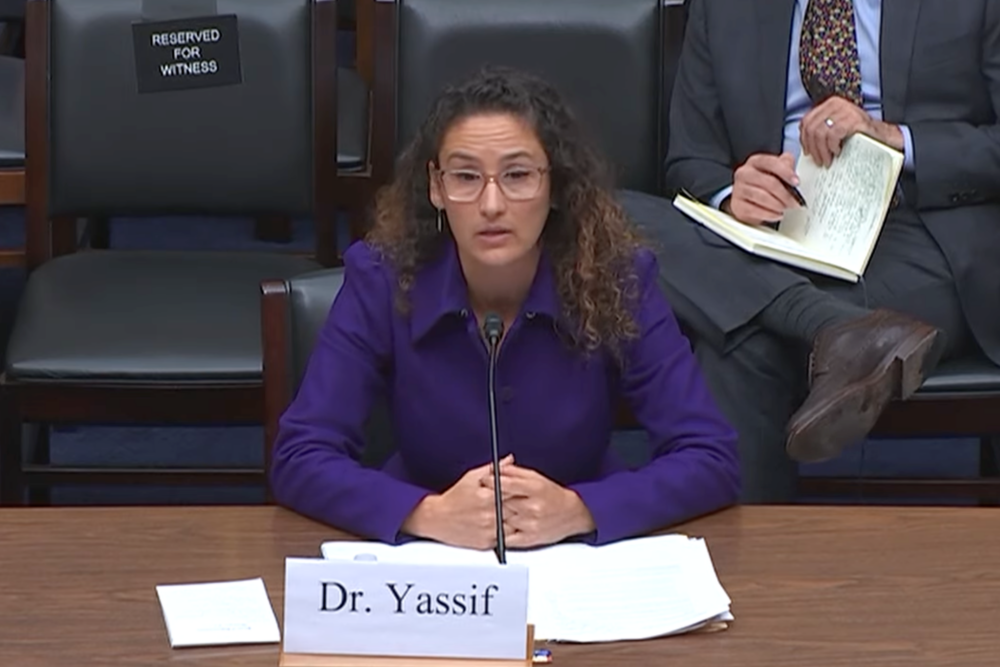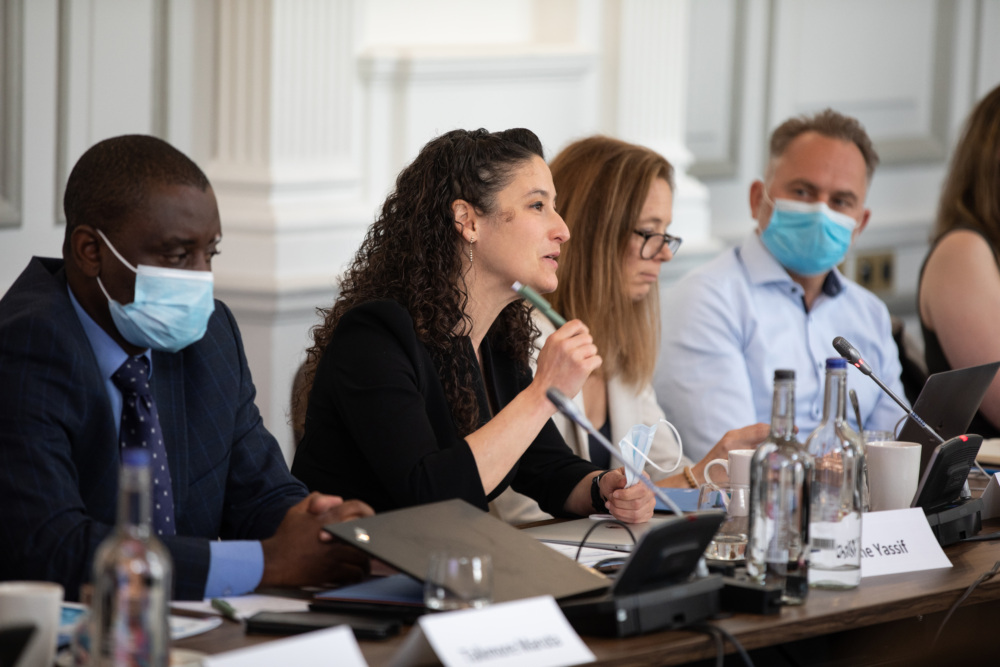NTI | bio Vice President Dr. Jaime Yassif discussed features of a model national laboratory system for effective public health emergency preparedness and response at a National Academies of Sciences, Engineering, and Medicine (NASEM) workshop in Washington, D.C. hosted on March 23-24, 2023. Yassif spoke during the March 24th panel discussion “Articulating the Elements of a Model National Laboratory System” where she raised key considerations and made recommendations for envisioning an ideal laboratory system equipped to respond to public health emergencies in the U.S. and as part of an integrated international response.
The two-day “Future of the Nation’s Laboratory Systems for Health Emergency Response” workshop brought together experts from government, public health agencies and laboratories, non-governmental organizations, and the private sector. Participants discussed the role of laboratories in providing critical diagnostic services during past, present, and future health emergencies. Participants also explored operational concerns such as private-public sector coordination, workforce needs, and laboratory capacities and capabilities.
Other panelists during the March 24th session included the Association of Public Health Laboratories’ Senior Advisor for Scientific Affairs Dr. Jill Taylor; Deputy Assistant Secretary and Acting Director of the Office of Preparedness within the Administration for Strategic Preparedness and Response Dr. David Christian Hassell; and Chief Medical Officer of Laboratories Dr. Jonathan Genzen. Associate Director for Science for the Center for Preparedness and Response, U.S. Centers for Disease Control and Prevention, Dr. Joanne Andreadis moderated the panel.
In her presentation, Yassif highlighted a broad range of biological risks—ones that could be naturally-occurring in origin, accidentally released from a laboratory, or the result of a deliberate biological weapons attack. She also noted that future threats may stem from natural or engineered pathogens. “We need to be prepared for the unexpected,” Yassif said. An ideal laboratory system would therefore require pathogen-agnostic capabilities.
Scale is another key consideration. According to Yassif, it is reasonable to expect that future biological events could be as devastating as COVID-19 or possibly much worse. Laboratory systems would therefore need the ability to rapidly scale up capacity to mount an effective response.
Finally, Yassif stressed that, “If we are going to invest resources in building lab capacity, we should also ensure that we build in biosafety and biosecurity by design – so we don’t exacerbate biological risks.” Yassif recommended that a fraction of funds invested in developing lab capacity be set aside for biosafety and biosecurity so that the capacity does not inadvertently contribute to biological risks.
Learn more about NTI | bio’s work to counter catastrophic biological risks and strengthen biosecurity and pandemic preparedness here.





